The escaped dissident still pursued decades on by China
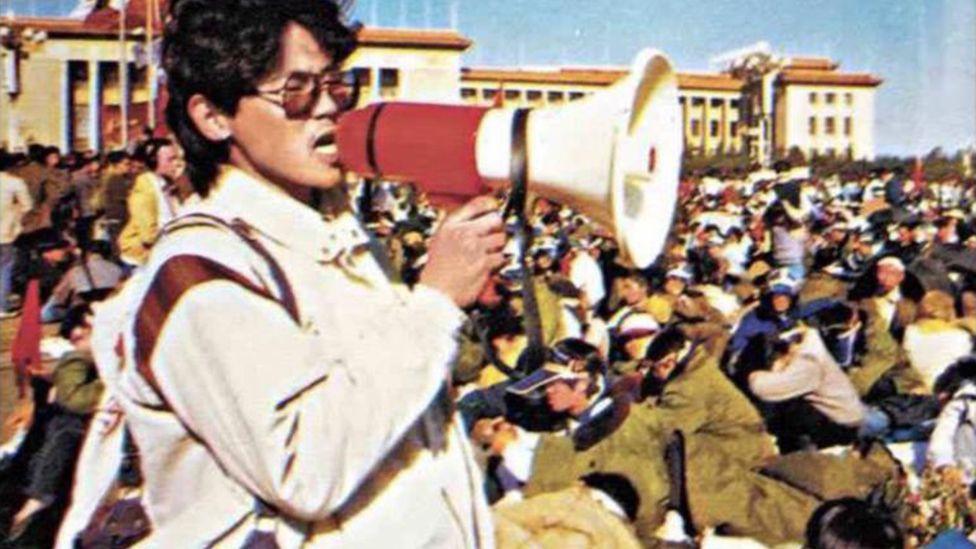
Beijing 1989: Yan Xiong pictured during the Tiananmen Square protests
- Published
Three decades ago, Chinese dissidents were being smuggled out of the country in a secret operation called Yellow Bird - but as one of them tells the BBC, Beijing is still pursuing them.
June 1992: It was the middle of the night on the South China Sea, and a Chinese patrol vessel was approaching a boat en route from the Communist mainland to the then-British colony of Hong Kong.
As border troops came on board to talk to the crew, their voices could be heard by a group of people packed into a secret compartment below deck.
A few minutes earlier, when the patrol boat was spotted, these secret passengers had been given an urgent order.
“I was told to hide,” one of them, Yan Xiong, recalls. “Don’t make any noise!”
Most of those hiding were economic migrants, hoping to find work in Hong Kong – but not Yan.
He was a political dissident, and if he was discovered, he would be in serious trouble.
Yan was being smuggled out of China as part of a secret operation code-named Yellow Bird.
The patrol eventually sailed away, and in the early hours Yan - who had never travelled in a boat before that night - arrived in Hong Kong.
After a hearty breakfast, he was taken to a detention centre. This was, he was told, for his own safety. Walking the streets could be dangerous.

Shadow War: China and the West
Gordon Corera looks at the growing tensions between China and the West.

Being in detention was not new to Yan. He had already spent 19 months in a Chinese prison for his part in 1989’s Tiananmen Square protests. Students had called for greater democracy and freedom, but the Communist Party sent in tanks to crush them.
At the end of June 1989, the Chinese government said that 200 civilians and several dozen security personnel had died. Other estimates have ranged from hundreds to many thousands.
On his release, Yan had made his way to southern China where, in scenes that could have been taken from a spy film, he was sent from one public phone booth to another, to be put in touch with the people who could get him out.
He was not the only dissident to undertake this risky journey.
Speaking to the BBC for a new series, Shadow War: China and the West, Chaohua Wang recalls her escape.
Despite being number 14 on a list of the 21 most wanted people after the Tiananmen Square protests, she managed to evade capture, hiding in tiny rooms for months before heading south and becoming part of the Yellow Bird escape line.
“I was like a parcel moved from one [person] to another,” she says.
“I didn't even know the name Yellow Bird for quite some years.”
Yellow Bird may sound like a classic spy operation, and many believed that an intelligence service - MI6 or the CIA - had come up with the idea. But they had not.
In fact, it was a private enterprise undertaken by concerned groups of citizens in Hong Kong, motivated by a desire to help out those who were on the run. Among them were the local film and entertainment industry and (more usefully) organised crime, in the form of the triads.
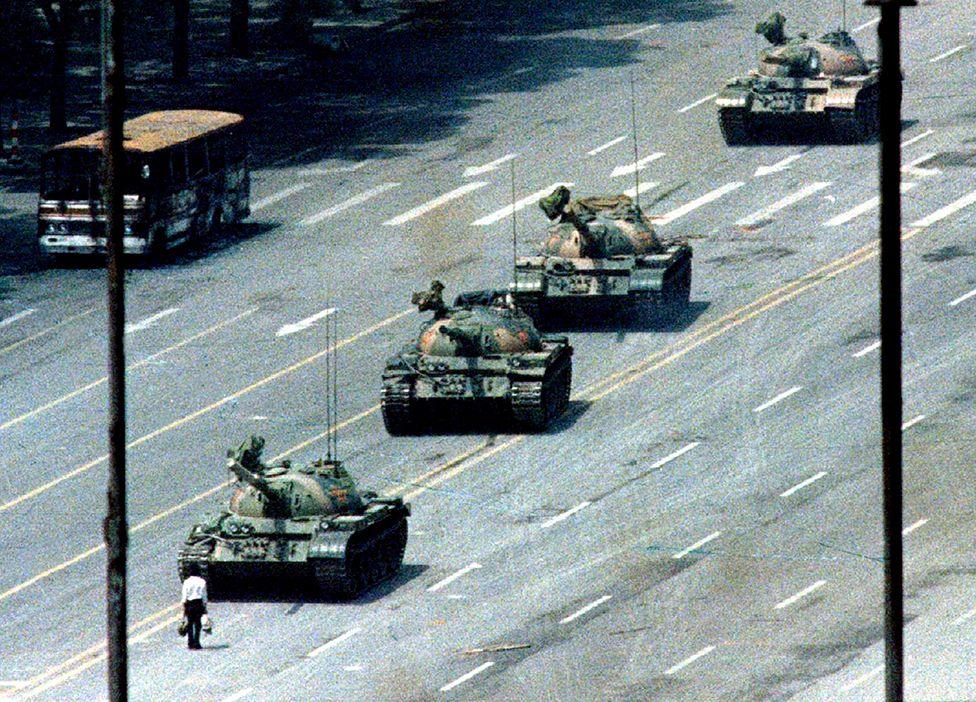
The Chinese army moved in to crush the Tiananmen Square protests
“They [the triads] had a lot of Chinese police in their pockets,” says Nigel Inkster, who at that time was an intelligence officer based in Hong Kong. This was what enabled them to move people out of hiding in Beijing and smuggle them across the border.
The UK and US only became involved when those people who arrived in Hong Kong needed to work out where to go next.
Yan remembers being visited by what he described as an “English gentleman” who never gave his name but helped him with the paperwork.
“It is better for you to go to America, not England,” the man told him. Within days Yan was in Los Angeles. Chaohua Wang also ended up in the US.
Why not England?
Former officials have told the BBC the UK was reluctant to take in Tiananmen protesters because it was desperate to avoid upsetting China in the run-up to the 1997 handover of Hong Kong.
An agreement had been signed by the UK in 1984, but the events of Tiananmen Square five years later raised difficult questions about Hong Kong’s future.
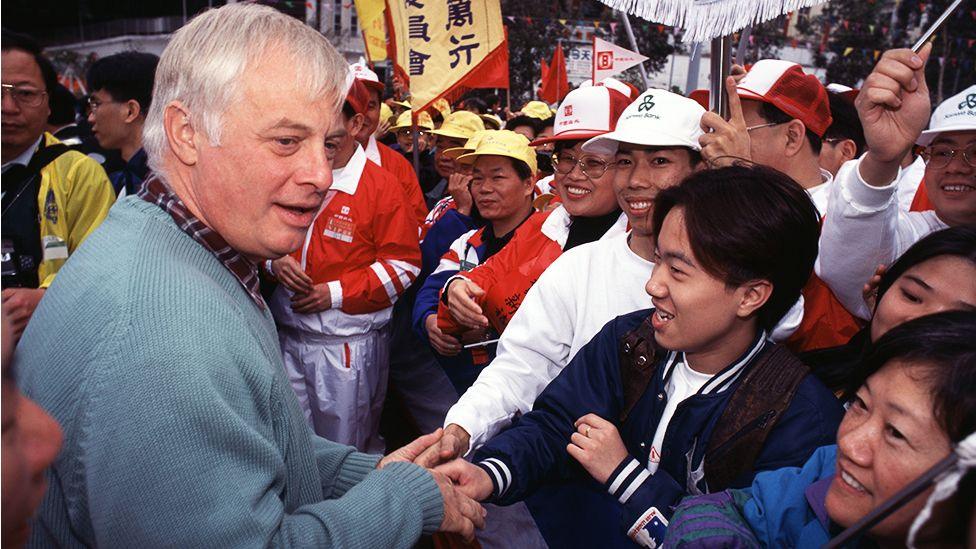
1996: Chris Patten (left) was Hong Kong's last colonial governor
In 1992, a few weeks after Yan’s arrival in the colony, the former Conservative cabinet minister Chris Patten became the last governor of Hong Kong.
He says he was determined to embed greater democracy, in the hope it would endure after the handover, and he announced proposals for the democratic reform of Hong Kong's institutions, aimed at broadening the voting base in elections.
There was opposition to the reforms not just from China’s leadership but also from those in London who did not want to antagonise Beijing.
“My main responsibility was to try to give people in Hong Kong the best chance of continuing to live in freedom and prosperity, and to do so after 1997,” the former governor, now Lord Patten, tells me. He says he also was aware of - but not involved in - Yellow Bird.
The reluctance to allow dissidents to come to the UK - and the anger in some quarters about Patten’s reforms - speaks to a central question from the 1990s which still matters today: How far should the West go to avoid angering China and accommodate its rise, especially when it comes to values like human rights and democracy?
Yellow Bird ended on the rainy night in July 1997 when Hong Kong became sovereign Chinese territory. For a few years, the liberties that Patten had been trying to secure, held. But in the past decade, China - under Xi Jinping - has taken a more authoritarian turn and has tried to bring Hong Kong into line.
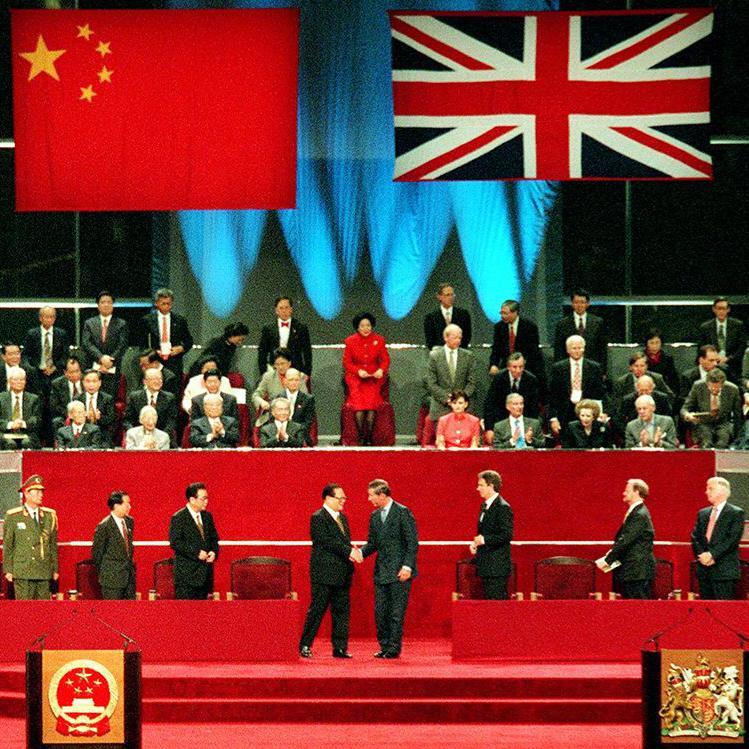
1997: Prince Charles and Chinese president Jiang Zemin mark the handover of Hong Kong
Yan took US citizenship and lived a model American life. He joined the US army and served in Iraq as a military chaplain.
He might have thought the hand of China’s Communist Party could not reach him in his new home, but he was wrong.
In 2021, he decided to run for public office. He stood as a candidate in the Democratic primary for New York's 1st Congressional District.
Yan started noticing some odd occurrences during his campaign. Strange cars followed him and lurked outside where he was staying at three in the morning. At campaign events, people would try to block him from speaking.
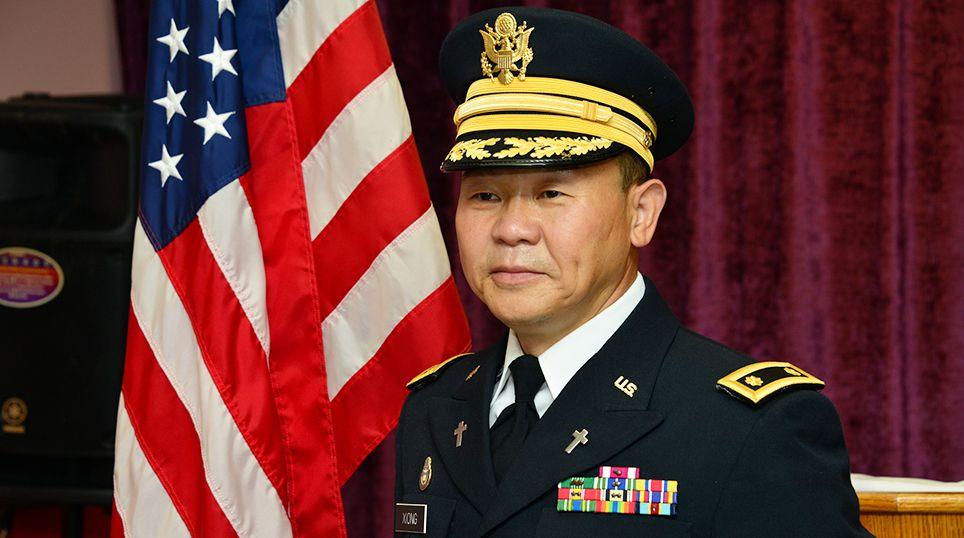
Yan served in the US army as a military chaplain
He learned why when the FBI came to talk to him. A US private investigator had told them he had been approached by an individual in China, who had asked him to carry out surveillance on Yan. It seems the idea of a former Tiananmen protester entering US Congress was unacceptable.
“He had specifically told our private investigator that they needed to undermine the victim’s candidacy,” says FBI agent Jason Moritz.
The FBI were able to monitor events as the Chinese-based individual proposed the investigator dig up dirt on Yan. If he could not find any, he was instructed to make some up. If that did not work, beating him up or even staging a car accident was suggested.
“They want to smother and kill my campaign,” Yan explains.
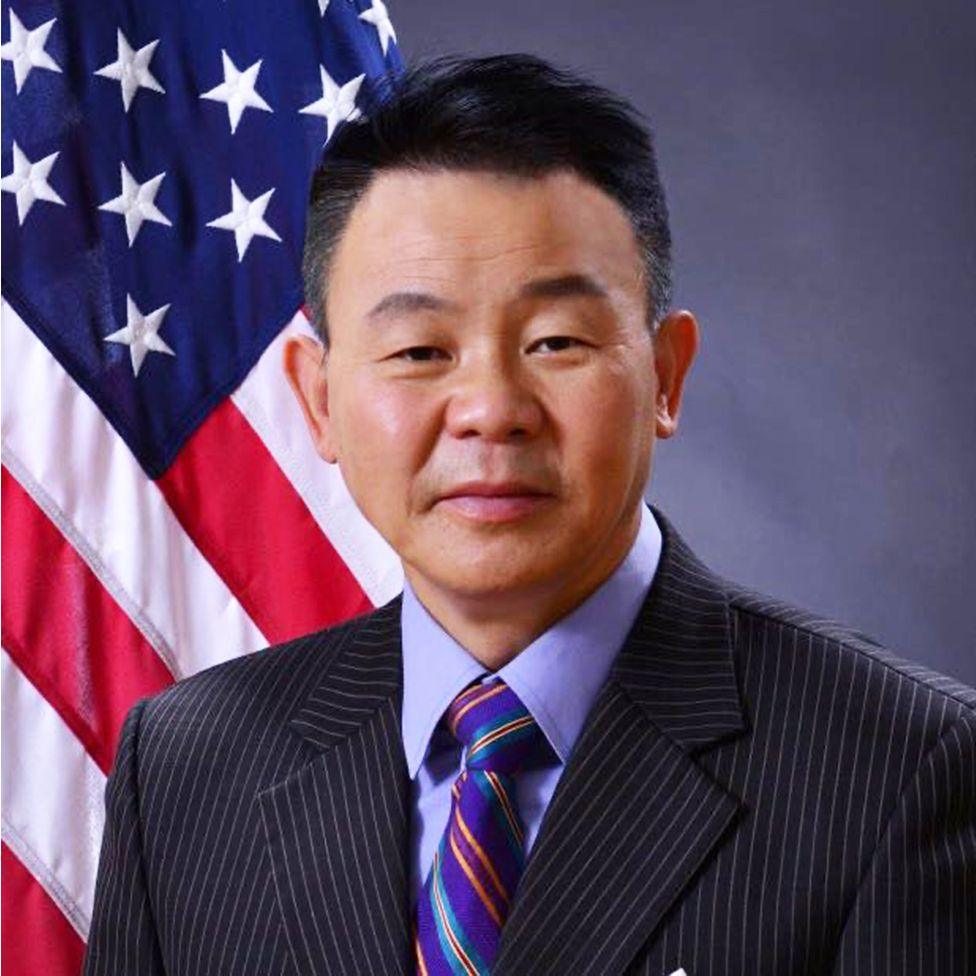
Yan tried to run for a Congress seat in New York in 2022
The person instructing the private investigator, the FBI assessed, was working on behalf of China’s Ministry of State Security. They were indicted but could not be arrested because they were outside the US.
China has consistently denied claims of political interference. But this is not the only case where it is alleged to have become more assertive in tracking down those it considers dissidents in other countries. There have been claims of “overseas police stations” in the UK and US and of individuals being pressured to return to China or be silent.
Yan’s story reveals that as China has become more confident and controlling at home, it has also sought to extend its reach abroad. And that is increasingly causing friction over issues of espionage, surveillance and human rights.
Meanwhile, Yan’s message to Western governments when dealing with China is simple: “They've got to be careful.”
Shadow War: China and the West starts on BBC Radio 4 at 13:45 on Monday 13 May, and is also available on BBC Sounds